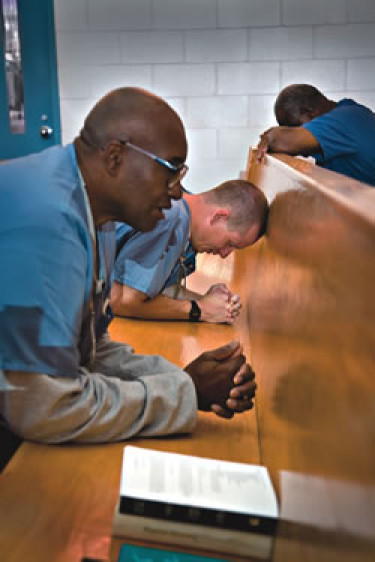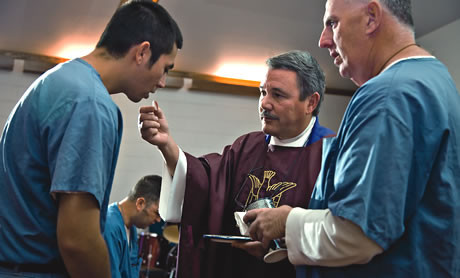SHARE:
Prison Reform: A Course Correction
With prisons full and a tight state budget, Florida business leaders are pushing reform as a matter of efficiency -- and public safety.
McNeil wants a transitional facility in each of the DOC’s four districts. He has told lawmakers he will hold back on plans for new prisons while the department continues to gather data on its community re-entry programs.
 [Photo: Jeffrey Camp] |
Former DOC Secretary Jim McDonough, who also tried to push reform and is still trying, says the cultural issues are “bigger than the DOC — much bigger.” Change requires buy-in from the judiciary system, which has expanded drug courts and mental-health courts, but most of all needs backing from lawmakers and the citizens who elect them.
| Closing the Revolving Door
Inmates who had a GED at release are 7.9% less likely to return to prison
than inmates overall. Inmates who had a vocational certificate at release were less 14% likely to return. Inmates who had both a GED and a vocational certificate at release were less likely 18.3% to return. Inmates who completed a substance abuse program were 56% less likely to return than felony offenders with substance abuse problems who did not receive treatment. |
Leaders at the Florida Chamber of Commerce and Associated Industries respond that the idea is not to focus only on today, but to put in place policies that will allow Florida to prosper in the future. They imagine a future of lower spending on prisons; a single-digit recidivism rate; and job-training for inmates targeted at the needs of Florida businesses in 2020, 2030 and beyond.
“In the heyday, if we had $100 million, it was easier to build a new prison than it was to work on this problem,” says Tony Carvajal, executive vice president of the Florida Chamber Foundation, the research arm of the Chamber of Commerce. “We don’t have that option anymore. But at the end of this, we don’t just want to balance the budget. We want to build a better state.”
 Allison DeFoor, a former sheriff of Monroe County, is now an Episcopal priest who ministers to inmates at the Wakulla Correctional Institution. Since Wakulla became faith-based in 2006, fewer than 10% of inmates released from the facility have returned to prison. [Photo: Jeffrey Camp] |
| Why They're in Jail
20.5% - Drug offenses (20,071)14.3% - Burglary offenses (14,073)
12.5% - Murder/ manslaughter (12,296) 0.5% - Violent offenses (48,804) |























